"If anyone in the world needs a lesson on maintaining and nurturing health, the Serbian people of all parts need it.
He, to the soul, is by nature clear and prudent, and in many ways judges maturely, but - miraculously - he is somehow harmless and ignorant in matters of life and health; what's more gullible, unreasonable, and therefore backward. "
These words, although they sound as if they are from 2020, were written in the preface of the Serbian edition of the Book of Health by Dr. Milan Jovanović Batut back in 1896.
His name is the Institute of Public Health of Serbia, and this year we mentioned the corona virus every day.
Trampoline was a doctor and university professor, the founder of the Faculty of Medicine, and because of his work on educating the people, they called him "the patriarch of Yugoslav health culture".
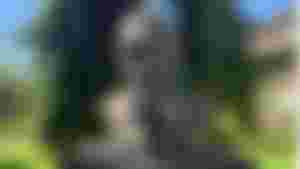
Unsurpassed in enlightenment
"Now you can see the importance of prevention and hygiene at the crown, and Trampoline was the prototype of that.
"He mostly fought for the formation of the Faculty of Medicine, and he was unsurpassed in enlightening the people."
Not everything went smoothly in Batut's life.
He had to stop his medical studies in Vienna due to lack of money and poor health.
During his stay in Austria, he returned to the family disease tuberculosis.
"They used to find him on the sidewalk," says Zizic.
Although he comes from a respectable and wealthy family, the Jovanovićs became impoverished in Batut's youth, during the struggle of the Serbian people for liberation in the second half of the 19th century.
"When he returned to his studies, a dozen Mitrovica residents gave money for his tuition."
Even today, the people of Mitrovica are proud of such a fellow citizen.
"The people of Mitrovica know that Trampoline was born in their city. Works about him were published in magazines and newspapers. "
"Even a dilapidated boat can sail far"
He was born on October 10, 1847 in Sremska Mitrovica.
He studied high school in Pancevo and Sremski Karlovci, and graduated in 1865 in Osijek.
He first worked as a doctor in Sombor, and then went south.
He founded the health service in Cetinje and was the chief of medical services in Montenegro in the period from 1880 to 1882.
During his stay in Montenegro, Belgrade became interested in Batuta, and as a scholarship holder of the Serbian government, he went abroad to study from 1882 to 1885.
In his youth, he suffered from tuberculosis, but the scars - cavities on his body remained for the rest of his life.
However, with a moderate and orderly life, he managed to reach the age of 93. He died in the fall of 1940.
He applied everything he told others and proved with discipline that "even a dilapidated boat can sail far".
Who are the doctors who defend Serbia from the corona virus
What would the doctors seeking the change of the Crisis Staff do differently
He studied the problems of hygiene and bacteriology in particular, but he also learned some life lessons in Europe.
"He learned from the French to be a patriot, and from the Germans that hard work can achieve great results."
He also performed autopsies, and was a professor of hygiene and forensic medicine at the Faculty of Law.
Dr. Trampoline was a pioneer in many ways.
He was educated in Vienna, Paris, Munich and Berlin and had famous teachers there.
There are great names in world medicine - Robert Koch, Louis Pasteur, English statistician Sir Francis Galton and Max Joseph von Pettenkofer.
Koch discovered the tubercle bacillus and won the Nobel Prize in Medicine and Physiology, and Trampoline was with him in the years after that discovery.
Pasteur is a French chemist and microbiologist who, among other things, found a vaccine against rabies, while Petenkofer is considered one of the founders of hygiene in Germany.
Trampoline kept their portraits in the study.
He rejected the offer to be the head of the microbiological department at Charles University in Prague, wanting to establish faculties in the then Kingdom of Serbs, Croats and Slovenes.
He was also the founder of the cremation society - Oganj.
"It is known that there was no significant work in the country regarding the health of the people, without Trampoline participating in it."
Tips for all times
In Sombor, as early as 1880, he started the magazine Zdravlje and continued it in Cetinje.
"The magazine 'Zdravlje' from 1908 states that cancer noticed on time can be operated on and does not have to be fatal, as well as descriptions of how it can be recognized in time and an appeal to call a doctor and be monitored regularly." .
From the same period at the turn of the century, he adds, there are allegations of educating the population about the harmfulness of tobacco and alcohol, as well as a program to reduce their use.
There are also instructions for vaccinating school children - which was then called "grafting".
Trampoline also wrote about the procedures for protecting the household from infectious diseases.
"From these and many similar allegations, we can easily conclude that at that time there was a developed awareness of preventive medicine in Serbia, on the improvement of which Dr. Milan Jovanović Batut worked in particular."

Respect for the Czech Republic
Numerous decorations, but especially two scenes with the Czechs, show how much they valued Trampoline not only in Serbia, but also in Europe.
"For his 90th birthday, a Czech magazine called him patriarch of Yugoslav health culture, "
When he received an honorary doctorate from Charles University in 1937, which has existed since the 14th century, the Czechs brought insignia to Serbia.
"In order for the act of delivery to be the same as in Prague, they presented the rector's flags for the first time and brought them to Belgrade.
Relationship with kings
He was not always on good terms with the Serbian king Milan Obrenović, because he was able to oppose him, and his opinion was respected.
"He had offers to be in the ministries, but he did not want to side with the parties."
It was not better with the Montenegrin King Nikola either.
King Nikola was too human and did not allow to talk about the problem of poor nutrition and poor treatment of the population, which Trampoline was personally convinced of.
"When King Nikola once asked him: 'Who will play cards?', Trampoline answered: You and I, to which the ruler became angry, asking him to address him with your majesty.
"However, he was his own, so he didn't care much for the royal orders."
A thorny road to the Faculty of Medicine
The health conditions at the end of the last century in Serbia were so difficult "that it is better not to mention them".
In everyday life and health care, there were no clear boundaries between medical practice and quackery.
Doctors mostly came from abroad, and from here they rarely went to other countries to study.
There was no prevention, the country was poor, and the treatment was mostly related to rulers or the army and wars.
Because of all that, Batut has been dreaming and working for decades to establish a Medical Faculty in Serbia, and he took over the idea from Dr. Josif Pančić.
However, not all colleagues supported him.
"There was a strong current of doctors educated abroad who opposed the creation of the faculty, because they thought they would be impoverished if there were many of them."
The conditions were acquired after the First World War, and this year the Faculty of Medicine in Belgrade is marking the centenary of its existence.
Then, Trampoline and his colleagues visited 17 high schools in Europe to emulate them.
The Faculty of Medicine was ceremoniously opened on December 9, 1920, with a trampoline speech in the ceremonial hall of the University.
"He was the first dean, but he did not manage to teach hygiene at the age of five, he retired."
Statistical microscope
"Whenever he researched something, he was studious, he was among the first to use the statistical method - he said that everything should be passed through a statistical microscope.
"He had a wide viewing angle."
He dealt with social medicine, but also demography - population and migration in European countries.
"When looking at whether a disease will become massively present in the population, such as the crown now, the influence of climate, weather, crop condition, number of births and deaths is analyzed.
"Trampoline saw all this at the beginning of the 20th century in order to be able to explain some phenomena."
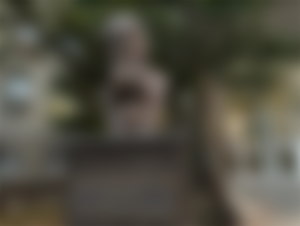
a
In the book Rebirth, he wrote recommendations and advice for young men and women after the First World War, when the population was decimated.
He also wrote about bachelors and old women.
He believed that the family is "the foundation of the strength and spirit of the people, the crossroads of all paths and the primary source of good and evil in human society."
He spoke several world languages and was married to a German.
He received four honorary doctorates.
Journalist and writer
He published books in various places across the country - in Sombor, Belgrade, Split.
"His life's work is Material for Medical Terminology, he has been making thousands of cards with medical expressions on them for decades. "
He kept a simple and understandable language.
"He had a wonderful style - he wrote in Vuk's language and Dositej's wisdom."
He was one of the most prolific health educators, writing 57 books and brochures, and hundreds of articles.
"Trampoline used to say, 'The book must be courted to the people.'"
He was also one of the founders of the Serbian Literary Association. He collaborated with Matica Srpska, the Serbian Literary Herald and was one of the first and most prominent associates of Politika.
Among other things, he was the president of the Serbian Medical Association, and he played a decisive role in the establishment of the Ministry of Public Health after the First World War.
He was able not only to write clearly and speak beautifully, but also to paint.
While he was in Montenegro, he drew landscapes.
A high-minded dude
It is not known exactly how he got the nickname by which he is still remembered today.
"There are two theories - that it is based on the card game, and according to the other, he took the family nickname from the merchant with whom his father cooperated.
"In his youth, he added that surname to be different from his contemporaries, such as the doctor and travel writer Milan Jovanović Morski."
It is known that material things did not mean much to him - he did not build houses and buy properties.
"He liked to dress nicely. He wore a top hat, suits, pants with a line, he was a real dude. He looked as high-minded as he was.
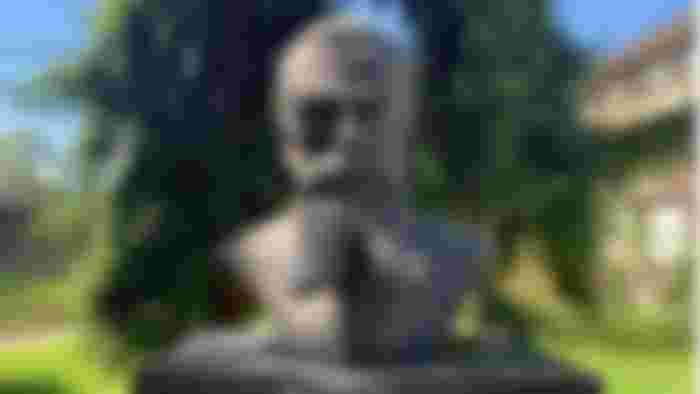
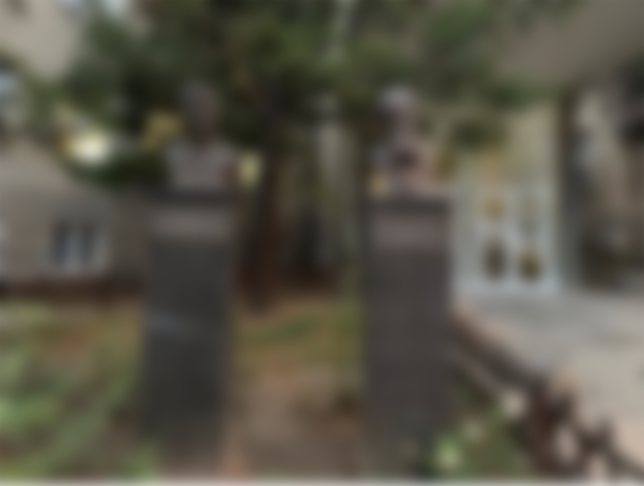
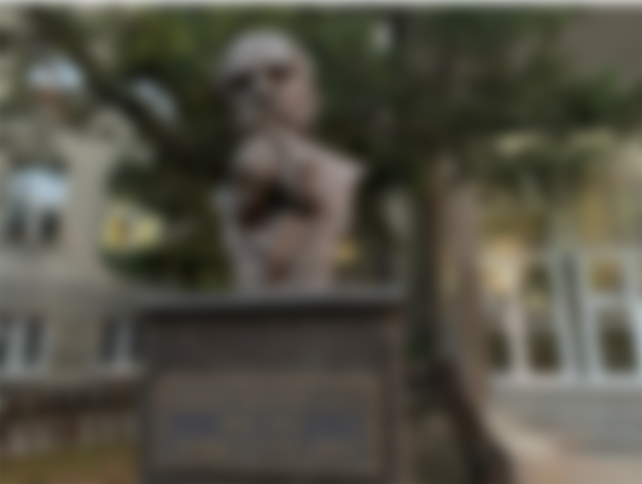
I don't know much about him, but definitely a good article